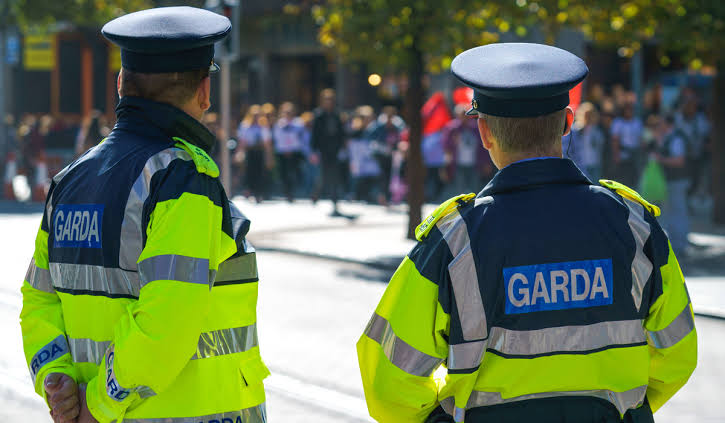Ireland executed a significant deportation operation, removing 35 Nigerian nationals from the country due to immigration-related offenses. The group, comprising 21 men, nine women and five children, was transported on a chartered flight from Dublin Airport to Nigeria, marking Ireland’s first deportation flight to an African nation in 2025. The operation, spearheaded by the Garda National Immigration Bureau (GNIB), underscores Ireland’s ongoing efforts to enforce its immigration laws amid rising public and political focus on border control.
The deportees were individuals who had either been denied international protection status or had violated immigration regulations, such as overstaying visas or residing in Ireland without valid permits. Some were part of family units, including children born in Ireland, which has sparked debate about the humanitarian implications of such actions. The GNIB, in coordination with the Department of Justice, ensured the operation adhered to legal protocols, with each case processed individually following the exhaustion of legal avenues for remaining in Ireland.
The chartered flight, costing €325,000, was defended by Justice Minister Jim O’Callaghan as a necessary expense to uphold Ireland’s “rules-based immigration system.” This operation was the third charter deportation flight of 2025, following earlier removals to Georgia, bringing the total number of deportees via such flights to 106 this year. Unlike commercial deportations, which are more frequent but involve smaller numbers, charter flights are used for larger groups and require significant logistical planning, including coordination with the receiving country.
Ireland’s deportation process begins with a “leave to remain” decision, where individuals are notified of their obligation to depart voluntarily. Those who fail to comply face deportation orders, which numbered 1,096 in 2024, though only a fraction typically result in enforced removals due to voluntary departures or legal challenges. The Department of Justice emphasizes that deportation is a last resort, with voluntary return programs offered to mitigate the need for forced removals, supported by reintegration assistance in some cases.
The Nigerian nationals were detained at various stages, with some held in Garda stations or prisons prior to the flight, as Ireland lacks dedicated immigration detention facilities. The operation involved close collaboration with Nigerian authorities to verify identities and issue travel documents, ensuring compliance with international obligations. The Department of Justice confirmed that all deportees were medically assessed and provided with necessary documentation before departure.
Public reaction to the deportation has been polarized, as reflected in discussions. Supporters argue that strict enforcement is essential to maintain the integrity of Ireland’s immigration system, citing the need to deter irregular migration. Critics, including advocacy groups like the Irish Refugee Council, contend that deportations, particularly those involving children, are costly and inhumane, urging greater focus on integration and humanitarian protections.
The Nigerian Diaspora Commission (NiDCOM) stated it had not been formally notified of the deportation, raising questions about communication between the two nations. This lack of coordination has drawn criticism from some Nigerian officials, who argue that advance notice could facilitate smoother reintegration for returnees. However, Irish authorities maintain that all necessary diplomatic protocols were followed, with the Nigerian embassy in Dublin informed of the operation.
This deportation follows a broader trend of increased immigration enforcement in Ireland, driven by a surge in asylum applications and public pressure to address irregular migration. In 2024, Ireland processed over 20,000 asylum claims, with Nigeria ranking among the top countries of origin. The government has introduced measures to streamline deportations, including faster processing of failed asylum claims and expanded use of charter flights for large-scale operations.
The €325,000 cost of the flight has drawn scrutiny, with opponents arguing that the funds could be better spent on asylum processing or community integration programs. Minister O’Callaghan, however, highlighted that the cost is justified when weighed against the long-term expenses of irregular migration, such as social services and legal proceedings. The government’s 2025 budget allocates €50 million for immigration enforcement, including deportations, signaling continued investment in such operations.
The operation has also reignited debate over Ireland’s treatment of children in deportation cases. The five children deported were part of family units, some of whom had lived in Ireland for several years. Advocacy groups argue that deporting children to countries they may have never known violates their rights, calling for reforms to prioritize residency for minors born or raised in Ireland.
Ireland’s deportation policy aligns with European Union frameworks, which permit member states to remove individuals who do not qualify for protection or legal residency. However, Ireland’s opt-out from certain EU migration directives allows it greater flexibility in enforcement, a point of contention among human rights organizations. The European Court of Human Rights has previously ruled on cases involving Ireland’s deportations, emphasizing the need for proportionality and consideration of family ties.
Looking ahead, Ireland plans additional charter deportation flights in 2025, with potential destinations including other African and Eastern European nations. The government has also signaled intentions to expand voluntary return programs to reduce reliance on forced removals, though uptake remains low. As immigration remains a contentious issue, the balance between enforcement and compassion will likely continue to shape public discourse and policy.
The deportation of the 35 Nigerians highlights the complexities of Ireland’s immigration system, where legal obligations intersect with humanitarian concerns. While the government views such operations as essential to maintaining order, critics argue they come at a high financial and moral cost. As Ireland navigates these challenges, the debate over deportation will remain a focal point in its evolving migration policy.




